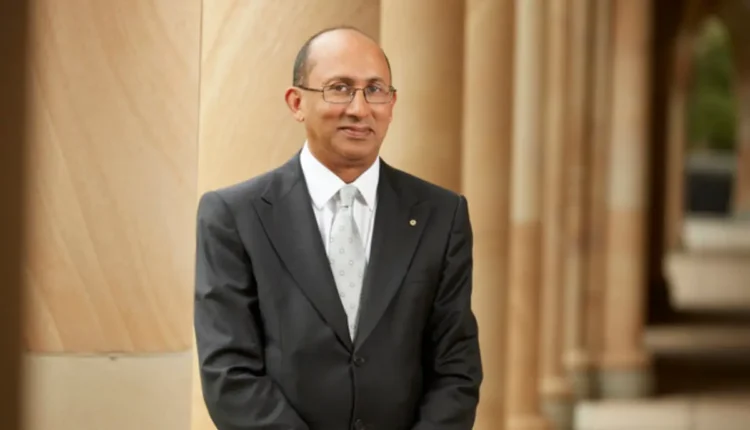In the vast landscape of international diplomacy, few figures have left as significant a mark as Peter Varghese AO. Born in Kenya on March 19, 1956, to Asian Indian parents of Nasrani Malayalee descent, Varghese’s journey from humble beginnings to one of the most influential positions in Australian foreign policy is nothing short of inspiring.
His exemplary leadership, deep intellect, and commitment to public service have made him a figure of global importance, influencing not only Australia’s role in international affairs but also its internal structures of governance.
Early Life and Education of Peter Varghese: From Kenya to Australia
Peter Varghese’s story begins in Kenya, where he was born to immigrant parents who carried the rich traditions of the Nasrani Malayalee community. At the age of eight, Varghese’s family made the life-altering decision to move to Australia in 1964. The shift was profound, but young Peter’s adaptability and intellectual prowess became apparent early on. The family settled in Newcastle before relocating to Brisbane, where Varghese’s academic brilliance began to shine.
Peter Varghese went on to study history at the prestigious University of Queensland, graduating with a university medal. His deep interest in history not only fueled his academic excellence but also laid the foundation for his understanding of global politics, culture, and diplomacy—skills that would later prove invaluable in his career as a diplomat.
Building a Diplomatic Legacy: The Early Years
Peter Varghese embarked on his diplomatic career in 1980 when he was posted to the Australian Embassy in Vienna. His time in Vienna, which lasted until 1983, was just the beginning of an illustrious career that spanned over four decades. He quickly built a reputation as a sharp, strategic thinker with a deep understanding of international relations.
His second overseas posting took him to the Australian Embassy in Washington, D.C., from 1986 to 1988, where he began to broaden his exposure to global superpowers and their political dynamics. During this period, Varghese played a crucial role in strengthening Australia’s diplomatic ties with the United States.
By 1989, he was appointed speechwriter to Foreign Minister Gareth Evans, a role that allowed him to shape Australia’s foreign policy discourse. His intellectual contributions during this time were vital to positioning Australia as a key player in global affairs.
Leadership in Australian Foreign Affairs and Trade
One of the pivotal moments in Peter Varghese’s career came when he was appointed as Head of the White Paper Secretariat from 1996 to 1997. Here, Varghese oversaw the drafting of Australia’s first white paper on foreign and trade policy, a monumental achievement that would guide the nation’s international strategy for years to come.
His ability to navigate complex international security issues was evident when he served as the First Assistant Secretary of the International Security Division in 1997. His reputation as a strategic thinker grew, and soon he was seconded to the Department of the Prime Minister and Cabinet as the First Assistant Secretary of the International Division.
Varghese’s ability to think on his feet, combined with a wealth of experience, culminated in his appointment as Australian High Commissioner to Malaysia in 2000. His tenure in Malaysia, which lasted until 2002, solidified his status as a top diplomat capable of handling the intricacies of foreign relations in the Asia-Pacific region.
Serving the Prime Minister and Leading National Intelligence
Peter Varghese’s influence reached new heights when he became Senior Adviser (International) to Prime Minister John Howard in 2003. In this role, he shaped national security policy and provided counsel on pressing international issues.
From 2004 to 2009, Varghese took on one of the most significant roles in Australian intelligence, serving as Director-General of the Office of National Assessments. This agency, responsible for advising the Prime Minister on global security issues, was led by Varghese through one of the most complex periods of global terrorism and geopolitical instability. His work in the intelligence community earned him widespread respect for his strategic insight and leadership.
High Commissioner to India and Chancellor of the University of Queensland
One of Peter Varghese’s most defining diplomatic roles came in 2009, when he was appointed Australian High Commissioner to India, with concurrent accreditation to Bhutan. This posting, which lasted until 2012, was instrumental in strengthening the ties between Australia and India, two nations with shared democratic values and strategic interests.
In December 2012, Peter Varghese reached the pinnacle of his public service career when he was appointed Secretary of the Department of Foreign Affairs and Trade (DFAT), a position he held until July 2016. During his tenure, Varghese was tasked with overseeing the integration of the Australian Agency for International Development (AusAID) into DFAT—a massive and challenging endeavor that reshaped Australia’s approach to foreign aid and diplomacy.
In 2016, Varghese retired from his position in DFAT and transitioned to academia, taking on the role of Chancellor of the University of Queensland. His return to the university that had played such an important role in shaping his intellectual journey was a fitting end to a career marked by service, leadership, and diplomacy.
Recognition and Legacy
Throughout his career, Peter Varghese was recognized for his exceptional contributions to public service. In 2010, he was appointed an Officer of the Order of Australia (AO) for his distinguished service, particularly in reforming Australia’s intelligence community and providing critical advice on foreign policy and international security.
Also Read:Jaishankar Clarifies 75% Progress on India-China Border Dispute

